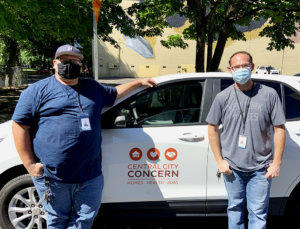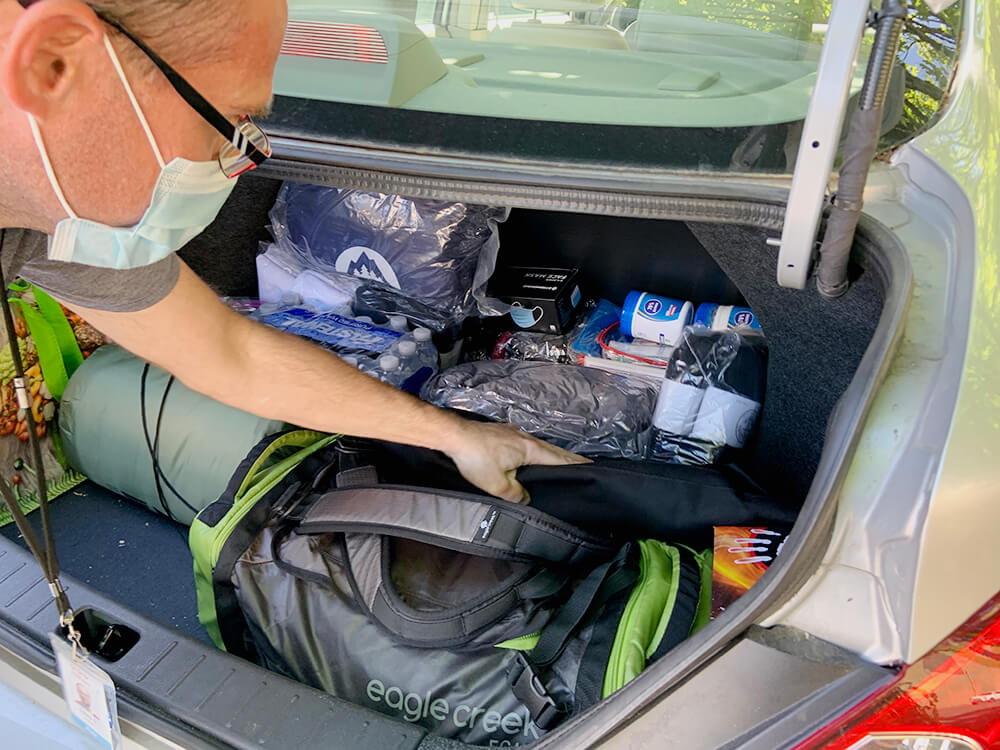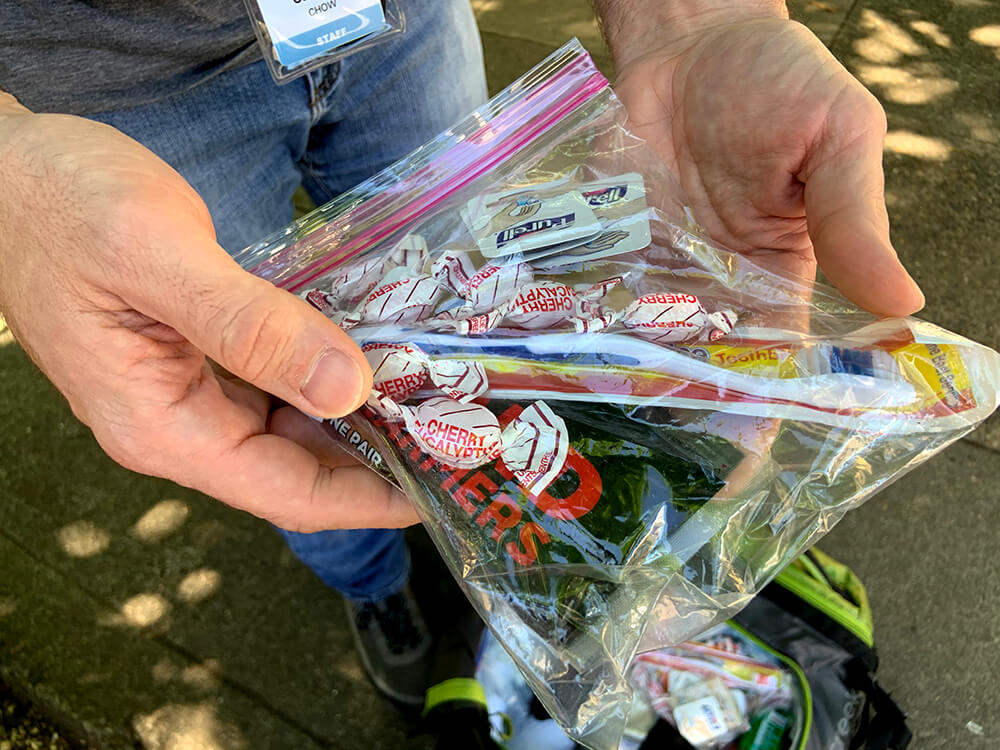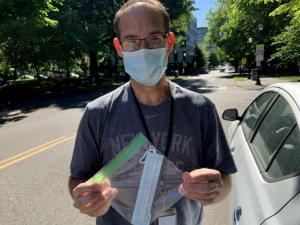This content block does not have a preview.
During a year of unprecedented challenges, CCC has continued to safely and compassionately serve our more than 13,000 clients, patients and residents – who rely on us to keep the doors open, now more than ever. And we couldn’t do it without our supporters, who ensure we can continue serving our neighbors in need.
Life during a pandemic is difficult for all of us, but the danger and uncertainty of COVID-19 is magnified for people who are living on the street. Health officials tout hand washing as the most effective tool for disease prevention, but Portlanders without housing don’t have easy access to soap and water. Recommendations to stay at home have become commonplace, but that’s not necessarily possible for folks living in tents on crowded sidewalks. Physical distancing reduces the chance of infection, but that can also lead to unhealthy isolation for those dealing with chronic physical and mental illness.
 Central City Concern outreach workers Casey Culley and David O’Neil know this is a critical moment for the people they serve.
Central City Concern outreach workers Casey Culley and David O’Neil know this is a critical moment for the people they serve.
“There’s so much uncertainty,” said David. “It’s just compounded for people who are already vulnerable.”
As community health outreach workers, Casey and David are doing what they can to ease the danger and uncertainty for people living outside.
The team starts at 7 a.m. each day, donning protective gear and jumping into cars that also serve as mobile offices and supply pantries. David starts making the rounds at three city-sanctioned outdoor shelters built in response to COVID-19. Casey travels to unsanctioned encampments on sidewalks, byways and under bridges around the Portland area — visiting, on average, around 150 people daily. As they move around the city, Casey and David take precautions to ensure they aren’t contributing to viral spread.


“We’re lucky to have great PPE,” said Casey about the personal protective equipment — face shield, N95 mask and gloves — he wears on the job.
Casey and David collaborate with the local nonprofit and CCC partner Transition Projects to form the Navigation Team, which is part of a citywide effort to reduce unsanctioned camping and connect people with housing opportunities and other services. The Navigation Team’s goal is to make consistent visits to camp sites, slowly building trust and — over time — connecting campers to shelter, services, housing and health supports.
Before the COVID-19 pandemic, the Navigation Team’s purpose was to help people transition out of campsites. For now, their message is the opposite. To stay healthy, they are urging people to stay where they are.
 David and Casey are bringing campers the things they need to shelter in place. They carry heavy backpacks full of supplies for the people they meet: masks and hand sanitizer, clean socks and personal hygiene kits, food and water. Casey and David are both trained to screen for coronavirus-like symptoms, so they ask how people are feeling and measure temperatures with infrared thermometers. They answer questions, address rumors and advise campers about how to creatively meet recommendations for hygiene and physical distancing. They can call the CCC COVID Triage Team for advice if someone feels sick and can arrange for mobile hand washing stations or toilet units to be set up at campsites.
David and Casey are bringing campers the things they need to shelter in place. They carry heavy backpacks full of supplies for the people they meet: masks and hand sanitizer, clean socks and personal hygiene kits, food and water. Casey and David are both trained to screen for coronavirus-like symptoms, so they ask how people are feeling and measure temperatures with infrared thermometers. They answer questions, address rumors and advise campers about how to creatively meet recommendations for hygiene and physical distancing. They can call the CCC COVID Triage Team for advice if someone feels sick and can arrange for mobile hand washing stations or toilet units to be set up at campsites.
They both say that their most valuable resource is the time they spend building relationships. Respect for personal dignity and commitment to personal connection are at the core of their work in community health outreach.
“I hope people see that I’m not just here to do a job,” Casey said. “It’s easy when the sun is shining, but it’s a lot harder during the storm. People don’t just see your commitment, they feel it.”
People are noticing. Art Rios is a longtime housing advocate and was a member of the homeless community for more than 20 years. He now works as a gate ambassador at one of the city-sanctioned outdoor shelters — known as “villages” by those living there — and he sees how David shows up and solves problems. Art says that David’s daily presence at the villages makes a big difference.
“David goes above and beyond,” Art said. “He’s kind and gentle, he doesn’t try to take over. He listens to people.”
Casey and David said maintaining the connection with people experiencing homelessness is more important than ever.
“I want people to look around and see that we’re still here. We’re not backing away from this work during COVID … we’re in the middle of it with them,” Casey said.